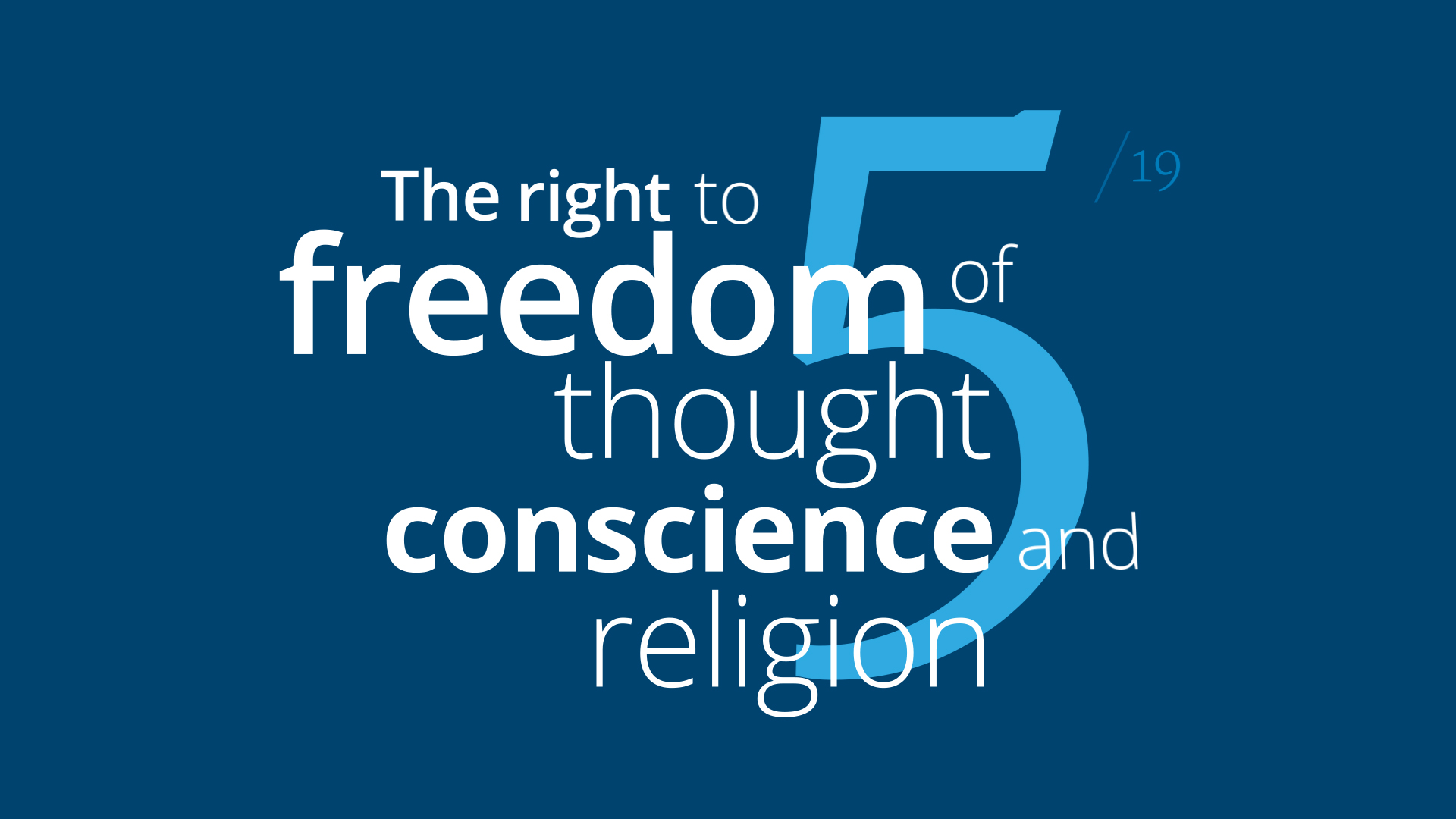

On November 17, 2020, Secretary General Thomas E. Garrett moderated a discussion panel ‘ United in Dialogue during Covid-19 pandemic’ at the 2020 Ministerial to Advance Freedom of Religion or Belief hosted by Poland.
Full remarks by SG Thomas E. Garrett
Welcome to our general session, “United in Dialogue during the Covid-19 pandemic”.
I believe this title perfectly reflects the most important prerequisites for our successful response to this global threat, a threat which has had negative consequences on human rights and fundamental freedoms, including the freedom of religion or belief.
There is a general feeling that in the challenging time of this pandemic we must stay united as humanity and put more emphasis on dialogue. Ultimately, we all share the same deepest spiritual convictions, fears and hopes as humans.
As Pope Francis wrote in his last Encyclical letter “Fratelli tutti” “(…) Covid-19 pandemic momentarily revived the sense that we are a global community, all in the same boat, where one person’s problems are the problems of all. Once more we realized that no one is saved alone; we can only be saved together (…).
But in spite of this general longing for more global, human unity, it seems that we are still witnessing too much fragmentation and self-regard.
Religion and faith are often victims of a situation created by the pandemic. Governments started to implement various public health interventions to control the spread of the illness restricting for example freedom of movement or freedom to gather which affect directly religious communities worldwide. Though these restrictions are often necessary, they should be always established by law and according with constitutional requirements of a country for a limited time.
From a legal perspective, international law requires governments to preserve individual human rights, including religious freedom, when taking measures to protect public health even in times of crisis.
It must be underlined that states are obliged to not limit the freedom to exercise religion or belief to protect public health in a discriminatory manner. Democratic societies should be based on principles of dignity of every person and the fundamental unity of the human race and these values should also be promoted.
Specific attention should be given to religious minorities – they are frequently subject to abuse, threats and discrimination in many areas of social life. This was true even before the pandemic.
COVID 19 not only limits our freedoms, especially freedom of movement, but has also changes our daily routines. We all spend more time online during lockdowns – and this has been a great gift, keeping us linked to family, friends and business colleagues.
But in too many other cases hate speech, aggression and discrimination in social media seems to be on the rise, while people’s frustration and fear grows.
This trend is affecting also religions and religious groups and its consequences can be tragic – mockery and intolerance in virtual space can lead to violence in the real world.
Taking into account these worrying trends there exists obviously a special role of international governmental and non-governmental organizations – they should act as watchdogs of human rights and fundamental freedoms, including the freedom of religion or belief. Multilateralism and international cooperation are crucial to create circumstances and conditions that will allow national authorities to successfully combat the pandemic.
There can be no local answer for the global threat.
At the same time, I would like to draw your attention to one important aspect of possible role of religions and religious leaders in current situation that merits to be discussed. In time of crisis religious leaders and faith communities can play a crucial role not only by providing spiritual support.
They can promote helpful information, prevent and reduce fear, provide reassurances and promote health-saving practices. Religious leaders are often able to reach the most vulnerable with assistance and health information and identify those most in need. They are a critical link in the safety net for vulnerable people in their community.
Let me finish this short intervention by citing again Pope Francis: “(…) the storm has exposed our vulnerability and uncovered those false and superfluous certainties around which we constructed our daily schedules, our projects, our habits and priorities… Amid this storm, the façade of those stereotypes with which we camouflaged our egos, always worrying about appearances, has fallen away, revealing once more the ineluctable and blessed awareness that we are part of one another, that we are brothers and sisters of one another (…)”.



